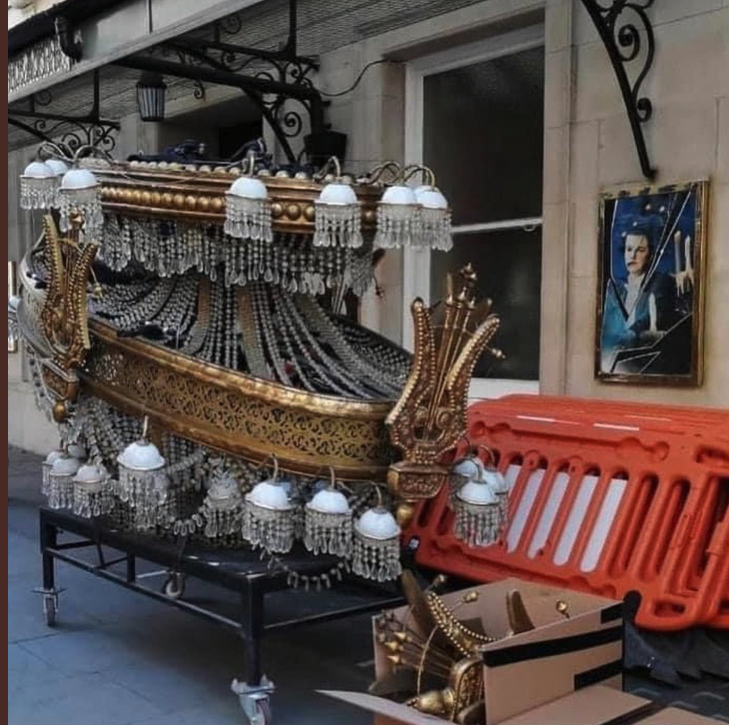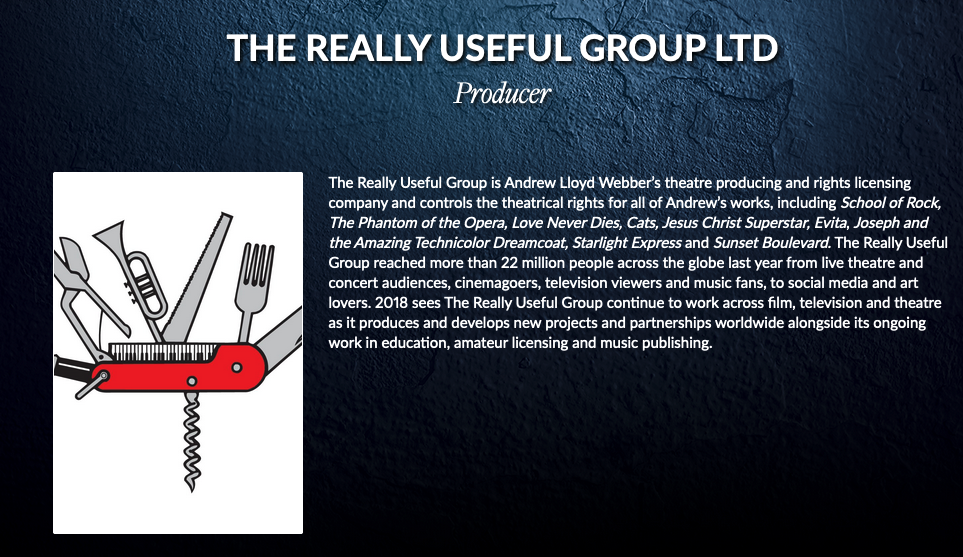And is Andrew Lloyd Webber speaking up for the theatre industry, or gaslighting it?
Boris Johnson announced on Monday that “freedom day” has been confirmed for next Monday (July 19), when we will be set “free” from all official COVID restrictions on our behaviours, and instead be asked to exercise personal responsibility and choice to protect ourselves (though presumably no longer each other, since such selflessness no longer feeds into the equation).
Julian Bird, CEO of SOLT and UK Theatres, has already previously welcomed the release of restrictions as a “lifeline” for the industry, and on Monday said:
“The thousands of people who have already come back to the theatre since May 17 have been overwhelmingly positive about their experience and how safe and comfortable they felt. As we increase capacity, we want to ensure that this positive audience sentiment remains. For this reason, we hope audience members show respect for fellow theatregoers and staff by continuing to wear face coverings when coming into our venues and moving around them”.
Hope as we know springs eternal. And if we are relying on ‘hope’ to get us through, God protect us. Already broadcaster and social media provocateur Julia Hartley-Brewer has tweeted her intentions:
As Femi Oluwole replied:
We are in uncharted waters. Until now, I have felt safe to go to theatres where audiences have been socially distanced (even if I have sometimes been doubtful about the minimum one metre-plus mitigations standard between parties actually always being in place; I’ve not had a tape measure to hand, but I’m pretty sure there’s less than a metre at some venues). I’ve also been reassured by some venues alerting me to their ventilation protocols, as Chichester Festival Theatre did ahead to me last night ahead of last night’s opening of South Pacific there:
Meanwhile, however, many shows are already facing sudden shutdowns as positive COVID cases occur in their companies, and the rest are forced into isolation. On Monday, we saw the closure of Hairspray at the London Coliseum, for example, extended for a second week (up to and including July 18); while Prince of Egypt, too (pictured above), has been shut down for the rest of this week. Both productions of Romeo and Juliet currently playing in London have been affected: 10 performances at Regent’s Park have been cancelled, with the run now set to resume on July 21; while at the Globe, last Saturday’s matinee was cancelled and another cast member rehearsed in to take over that night. On Monday, too, the Bridge cancelled the rest of this week’s performances of Bach & Sons.
I’m not quite sure how the theatre industry can sustain itself with this amount of disruption (and lost revenues). As SOLT President Eleanor Lloyd said on Monday,
“Producers want to get our industry back on its feet, creating employment and entertaining audiences across the country – but we are doing so under debilitating self-isolation rules and still without the protection of cancellation insurance. This is not a sustainable situation, especially as the safety net of the Culture Recovery Fund continues to leave many productions ineligible for support.”
All of this is of course BEFORE so-called “Freedom Day”, when the brakes will come off and the already fast-escalating rates of infections will inevitably increase further. 36, 600 new cases were identified:
Sage is expecting hospital admissions to reach at least 1,000 per day in the summer following the lifting of most remaining Covid restrictions for England. And, as reported by The Guardian,
“It has also said the anticipated rise in Covid cases, combined with high levels of vaccination, ‘creates the conditions in which an immune escape variant is most likely to emerge’. If this were to happen, it would pose a risk to health around the world, Sage says.”
As with Julian Bird’s “hope” that audiences continue to mask, Boris Johnson told the public in a press conference on Monday,
“It is absolutely vital that we proceed now with caution. And I cannot say this powerfully or emphatically enough. This pandemic is not over. This disease coronavirus continues to carry risks for you and for your family. We cannot simply revert instantly from Monday 19 July to life as it was before Covid. We will stick to our plan to lift legal restrictions and to lift social distancing, but we expect and recommend that people wear a face covering in crowded and enclosed spaces where you come into contact with those you don’t normally meet, such as on public transport.”
But “expect and recommend” is not the same as enforcement. With the likes of Julia Hartley-Brewer proudly defying that recommendation, the stage is set for chaos. And our stages are likely to be shut down again and again.
As a Guardian editorial published online on Monday puts it,
“People want clear, consistent signalling in a pandemic; the public cannot gauge the threat of a disease. The government has the ability to track and contain outbreaks. It is supposed to plan a collective response, providing reassurance that it will deal with the pandemic if the public stick to the rules. But from 19 July, Mr Johnson says Covid compliance will be a matter of personal responsibility. To ram the message home, the government is withdrawing pandemic safety nets. It’s making no visible effort to install ventilation systems in offices and schools. Making public health measures a matter of individual choice sends a message that they’re no longer important. There is no point in telling people to go slowly without imposing a speed limit. This messaging will just lead to more infections, hospitalisations and even deaths.”
As epidemiologist Eric Feigl-Ding has pointed out:
He mentions Boris Johnson in the same breath as Jair M. Bolsonaro.
And Philip Pullman tweeted on Monday,
GASLIGHTING THE THEATRE INDUSTRY, OR SPEAKING UP FOR IT?
In an interview with Andrew Lloyd Webber published online by the New York Times on Monday, he stated, “I never wanted, never intended to be the sort of spokesman for the arts and theater in Britain. But there came this strange situation where nobody else seemed to be.” It’s true that Cameron Mackintosh has stayed mostly silent; but Lloyd Webber is gaslighting an industry where others have regularly spoken up, from Nica Burns to Sonia Friedman.
But he also once again only takes responsibility when it suits him.

As the New York Times reported, “Lloyd Webber has not escaped criticism in his own community. In April, it was reported that the orchestra for The Phantom of the Opera in London would be slashed in half when it reopens, with percussion, harp and oboe replaced by keyboards.” (The entire original production was stripped out of the theatre last year — see picture above — and it will be replaced by the new touring version launched in Leicester last year).
It quotes Matt Dickinson, a percussionist who lost his job in that orchestra as a result, saying, “When I see him get on his soapbox, part of me wants to applaud him and part of me wants to take him to task.”
And the New York Times then reports: “Asked about this, Lloyd Webber said he was not the show’s producer, and pointed out that during lockdown he had recorded a set of orchestral suites that employed 81 freelance musicians.”
But actually, his Really Useful Group IS the co-producer with Cameron Mackintosh Ltd, and has always been, from the day the show first opened in London in 1986.
They are even thus billed in a prominent page on The Phantom of the Opera website:

As Cameron Mackintosh remarked in an interview with Dominic Cavendish in the Daily Telegraph last October,
“Before lockdown we opened a fabulous new production [of Phantom] in Leicester, which Andrew came to see – and it’s going to go into Her Majesty’s. His company is the co-producer. It was just Andrew being ‘the artist’. When it suits him he’s the lonely artist and when he wants to put on a show he’s the showman. He has always been like that. I just get on with things.”
